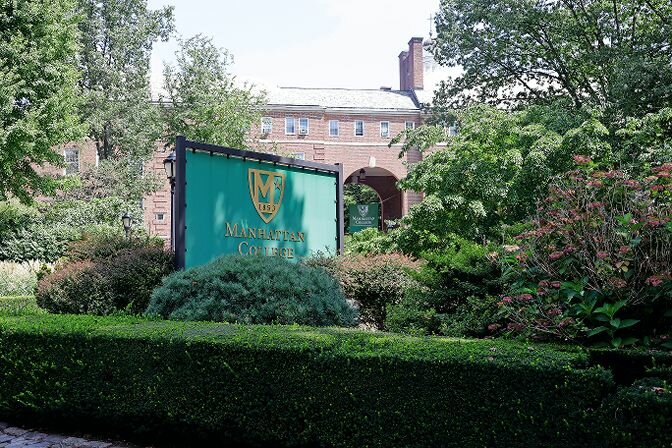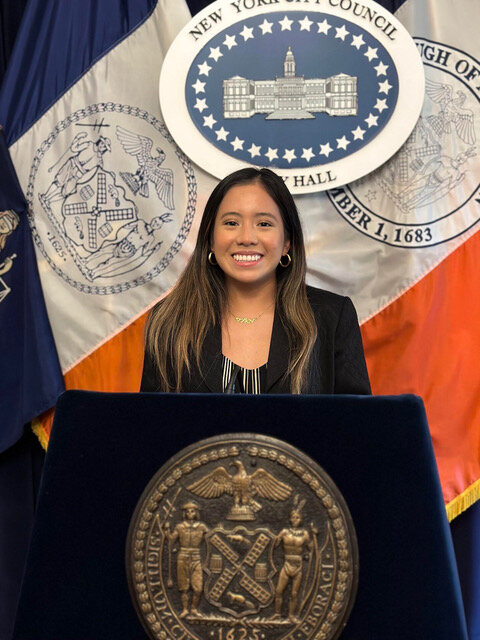Legacy admissions targeted in state colleges
City Council passes a resolution from Dinowitz asking practice to end
Does family history matter when it comes to education? Knowing the right people is a privilege, especially in some elite schools. And it takes a spot away from someone else, which can change the trajectory of their lives.
It’s that privilege that inspired Councilman Eric Dinowitz, who chairs the higher education committee, to propose a resolution to end the practice of “legacy admissions.” He introduced the bill in 2022 before it was approved recently with only one council member against it.
“All this bill says is we should level the playing field,” Dinowitz told the New York Daily News.
The resolution calls on the New York State legislature to pass and govern to sign the Fair College Admissions Act.
“Only one councilmember voted no, and I thought that was very surprising because personally, I was assuming that it was going to be a unanimous vote — the thought of having a reason to not vote for it, in general, was surprising,” said Emma Burke, a rising junior at Syracuse University and an intern in Dinowitz’ office this summer.
According to NYCLU, Syracuse is one of the few schools to be highly selective in its enrollment process, along with Harvard, Fordham and some others.
She said this resolution would judge the person’s character and academics rather than their background.
Burke is not a first-generation student and is considered to be a minority, but that didn’t stop her from enrolling in an elite university. Burke converted to Judaism. But her background goes further than that: she was adopted in Guatemala by a Catholic Irish father and Jewish mother. Her grandfather was in the Holocaust, she said.
At first, the councilman explained to Burke that legacy admissions was first to prevent Jewish students from attending some colleges. And Burke hopes that her mother can finally see her religion will not be a factor in admissions for the future.
Legacy admissions in universities trace back to the 1920s. Back then, elite schools used this admissions process to maintain spots for White Angelo-Saxon Protestants. Back then most feared that not only Jewish students would enter, but Catholics and Asians, too.
She explained issues that go beyond politics could affect people. And whom it is impacting is really important, she stressed.
She was actually at city hall while Dinowitz’s resolution was passed and she called the experience very exciting.
“With affirmative action dissolved by a conservative Supreme Court, the time is now to do away with legacy admissions,” said state Sen. Andrew Gounardes.
The U.S. Supreme Court ruled earlier this year that race cannot be a factor in higher education admissions.
But legacy admissions is different. It means one group of people in particular benefit from a college or university in the admissions process based on being a relative of an alumnus.
Having an alumnus in the family can help. And having a successful notable family member can help more in some higher education institutions.
Legacy admissions put “minority groups, immigrant students, first-generation students at a very hard disadvantage comparatively,” Burke said.
She told The Riverdale Press she is grateful every single day for her enrollment into Syracuse University. “I feel so grateful that I was given the opportunity to go there,” she said.
“I applied during Covid, so it was a very odd year to be applying to colleges, and especially a woman who is both Jewish and Latina — I knew the chances of getting into a more selective college would perhaps be limited,” Burke said.
And now, since classes are no longer remote, she looked around campus. She looked at her classmates, and minority groups were at a very low percentage. She thought to herself, Syracuse could do better.
She is majoring in international relations with a focus on international security and diplomacy in the Middle East and North Africa. She said all she wants to do is be a diplomat and make a positive difference.
And watching the councilman at city hall she said she learned so much more than she ever thought she would. “I learned to treat everyone with kindness and the importance of honesty, listening, and really visiting the community you are representing,” Burke said.
“My father is a firm believer of giving people a fair chance regardless of who they are, where they came from, what language they speak or don’t speak.”
Manhattan College is proud not to have such a legacy admissions program, an executive told The Press.
“We do not have a legacy admissions program at Manhattan College,” said Kevin Cavanaugh, vice president of enrollment management and admissions. “While many of our students learn about the college from family members, we do not give these students any special consideration in the admissions process.
“Our admission decisions are designed to identify the most qualified candidates and are based solely on the merits of their application materials and the quality of their high school performances.”
And for the northwest Bronx, Manhattan College might not be an “elite” school. But it is known as the top 16 schools in the Regional University North — and it certainly has some legacies.
For example, Manhattan College’s newly appointed president Milo Riverso’s family, runs strong in the institution with his father and siblings. It does not mean Manhattan College used legacy admissions. It can be that they all aimed to achieve the same education.
Riverso’s son will enroll there, too.









